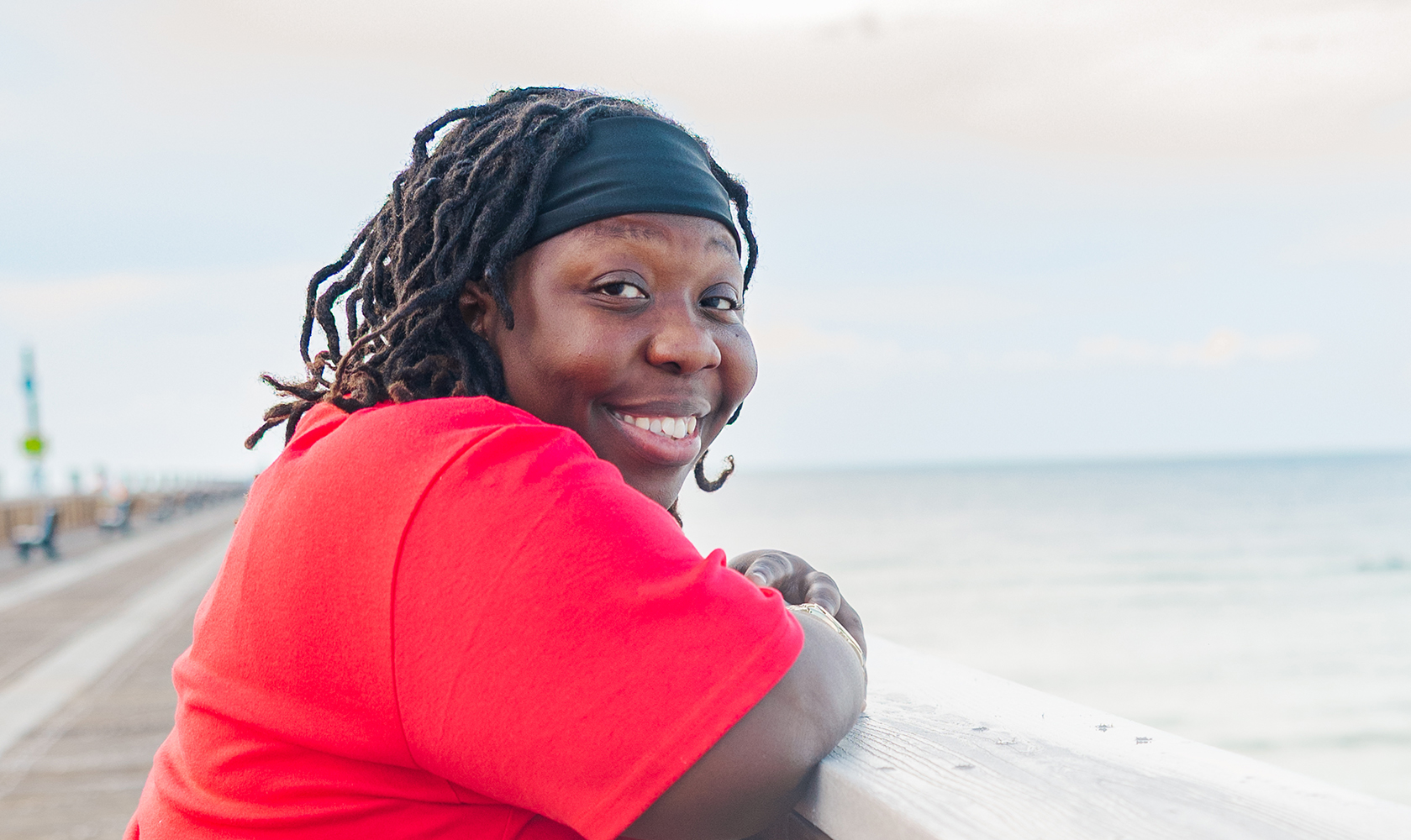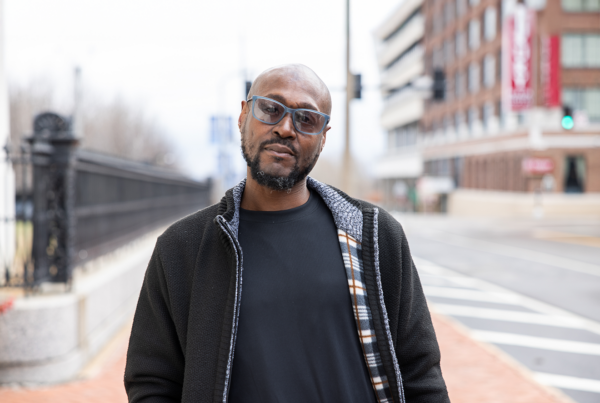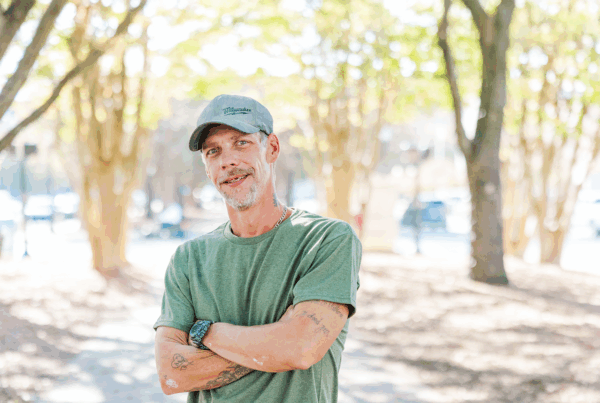Latandra walks in grace now. At just 36 years old, she is a woman who’s overcome much. Today, she’s a year clean and living with purpose in Pensacola, Florida, where she’s completing a faith-based reentry program that she credits with saving her life.
But the road here was hard.
“I’ve been in shootouts, I’ve had bullets miss me and hit the person standing in front of me.”
“I’ve been in shootouts, I’ve had bullets miss me and hit the person standing in front of me,” Latandra says. Her calm doesn’t dull the weight of her story. It only deepens its truth. Raised in a Pentecostal family, she grew up hearing her great-grandmother pray. But after surviving childhood sexual abuse and being disbelieved by family, she ran from home, distrustful and hurt.
She found herself drawn into street life, seeking connection in a world that promised acceptance. “I thought the loyalty I saw there was real,” she says. “But they chew you up and spit you out.”
Latandra moved between Tennessee and Florida, trying to outrun the pain. Pensacola had once been a spiritual refuge. As a child, she visited often; her great-grandmother pastored there. So when life unraveled again in Tennessee, she returned, hoping for a fresh start. She completed a recovery program and secured housing, but familiar surroundings led her back into familiar patterns. She relapsed.

At the time, one of Latandra’s closest friends was also struggling with addiction. During one of their moments together, he handed her his bank card – something he’d done many times before – and asked her to run a few errands.
But this time, something went wrong. He overdosed on fentanyl.
Latandra called 911 and stayed with him until paramedics arrived. She believed he would survive.
“I thought he was going to make it,” she says. “I’ve seen Narcan work before. I really believed he was okay.”
She wasn’t allowed into the hospital, and because she wasn’t family, no one gave her updates. For weeks, she assumed he was recovering.
Then his family began calling his phone, which was still in her possession. When they asked where he was, she told them what had happened. It was the first time they had heard about her or even that her friend was using drugs.
Eventually, the family tracked him down and learned that he had died from the overdose. For Latandra, it was a devastating loss – but in the eyes of his family, she became a suspect. The fact that she still had his phone and bank card raised red flags. They didn’t know about the trust between the two friends, or their long-standing arrangement. Grief-stricken and suspicious, they pressed charges. A warrant was issued for unauthorized use of a financial instrument.
“I had to explain it to his family,” she says. “They didn’t want to hear it. They just saw what it looked like on paper.”
The morning of her arrest, Latandra was home in Pensacola when she heard a knock at the door. It was around 9 a.m. An officer asked her to step outside, “to talk,” he said. But as soon as she crossed the threshold, a swarm of officers emerged from around the side of the house. Fourteen squad cars surrounded her home.
“They came out of nowhere,” she says.
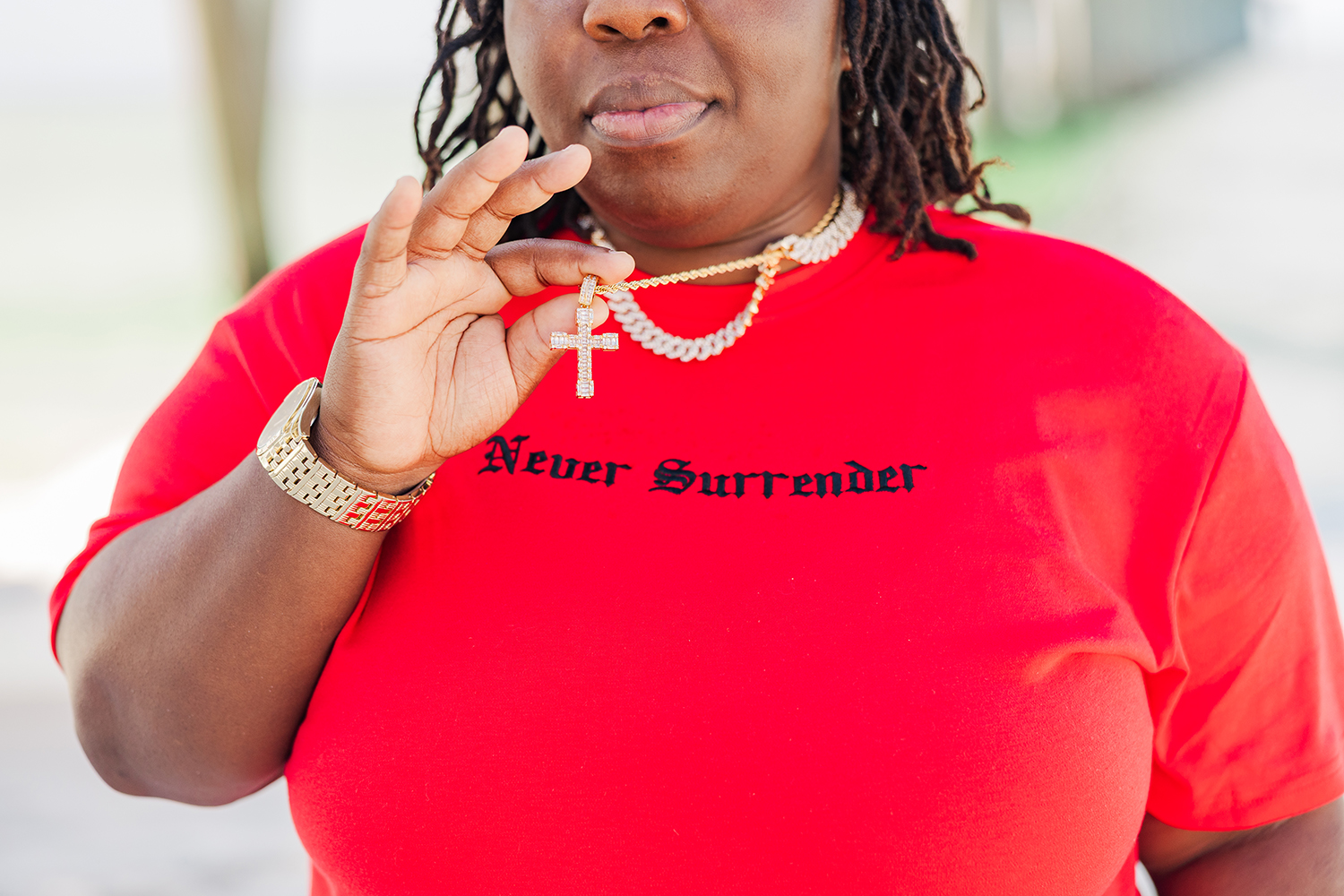
Latandra didn’t know there was a warrant out for her arrest. No one had called. No one had come to speak with her.
The officers arrested her on the spot without explaining what the charges were. It was the first time she fully understood she was being criminalized for what she saw as a tragedy – and a misunderstanding.
At the Pensacola jail, Latandra says she was denied the medications she relied on: Suboxone for opioid use disorder and Zoloft for her mental health. Both were stopped cold turkey. The effects hit fast – and hard.
“I was sick for weeks. I could barely keep food down.”
She vomited constantly. Her body ached. Her thoughts spiraled. “I was sick for weeks,” she says. “I could barely keep food down. I was shaking. Sweating. Dizzy.”
Jail staff offered little more than ibuprofen and anti-nausea pills. No withdrawal protocol. No mental health support. After several days without real care, Latandra pretended to faint just to be seen by medical staff.
“I had to fake passing out,” she says. “That’s what it took for them to look at me.”
The conditions weren’t just indifferent – they were punitive.
Then came a lifeline.
Her bail had been set at $2,500, an amount she couldn’t afford. After 95 days, The Bail Project stepped in, not just to secure her release, but to coordinate directly with Charis House, a local faith-based reentry program, to ensure she’d have immediate shelter, support, and structure. Instead of being released to the same cycle, Latandra says she found shelter, consistency, and a spiritual community that reminded her she mattered. She had transportation to court dates, help with job placement, and support reconnecting with herself.
“I’ve been blessed in ways I didn’t even ask for,” she says.
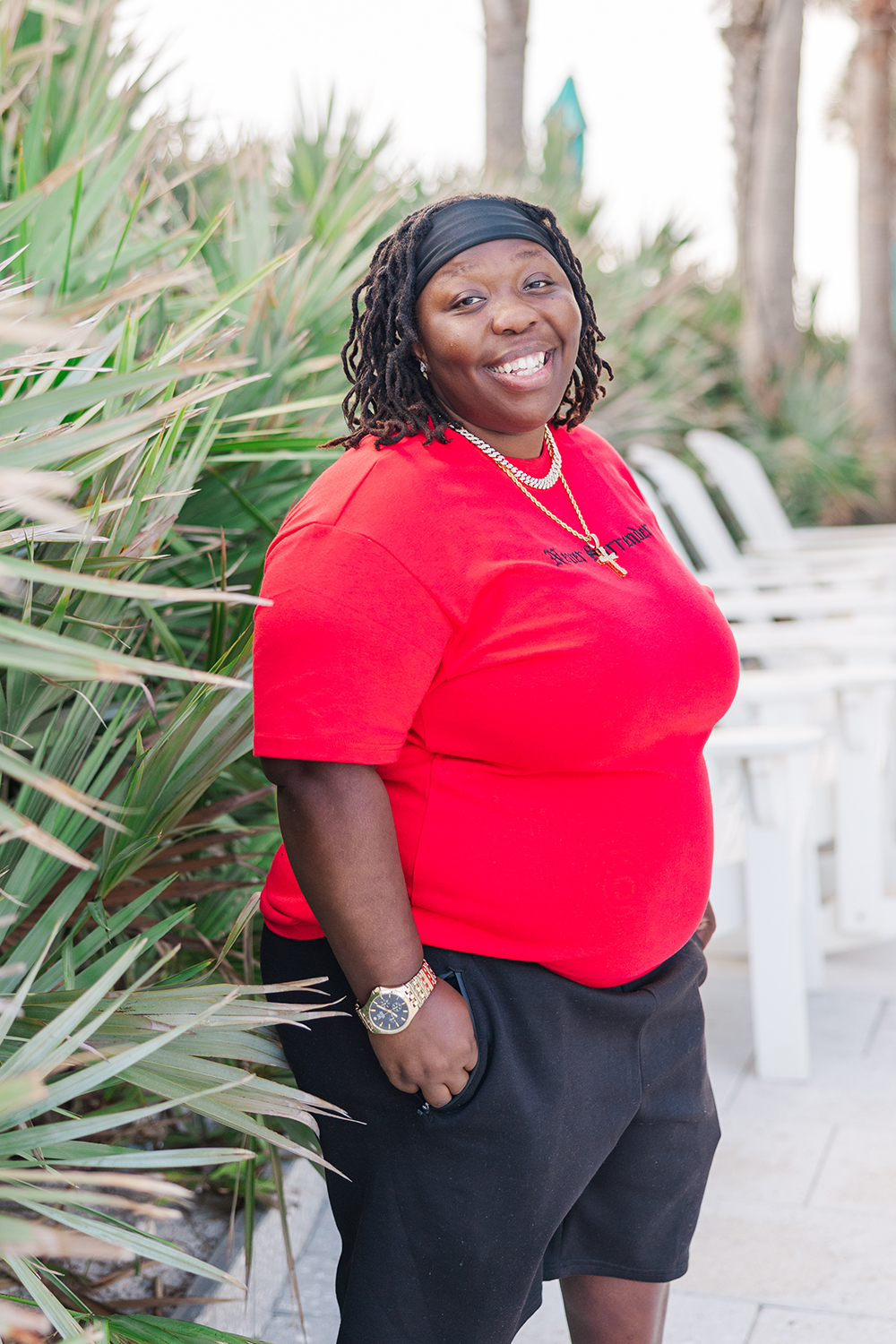
Since entering Charis House, she has been baptized and found work with a tree-cutting company. The owners treat her like family. She’s sober. She’s stable. She’s beginning again.
Latandra is clear-eyed about the risks of reentry and recovery programs. Not all are helpful, she says, especially for Black women navigating both trauma and racism.
Some spaces left her feeling surveilled or manipulated. Others treated her differently because of her race. But this place, she says, is different.
“Some places use God for control,” she says. “But here, they have patience. They walk with you. They help you heal.”
Healing, for Latandra, has come from facing her past, including her own decisions. She’s had to learn to trust again, not just in others, but in herself and in the possibility of care without conditions.
“I used to think if I did things for people, they’d care about me. But it starts with knowing people’s hearts.”
“I used to think if I did things for people, they’d care about me,” she says. “But it starts with knowing people’s hearts.”
Now, she says, she pays attention to people’s actions to gauge their intentions. She understands love as something rooted in mutual care, not transactions.
Her vision is simple but profound. She wants to help someone else meet Jesus the way she did. “I want to give somebody else the same hope I got,” she says. “Just to let them know that Jesus is there. You are never alone, and Jesus still heals the broken.”
Latandra’s story isn’t just about surviving incarceration or addiction. It’s about what can happen when someone is met with compassion instead of judgment, and when faith becomes a tool for healing.
Thank you for reading. The Bail Project is a 501(c)(3) nonprofit organization that is only able to provide direct services and sustain systems change work through donations from people like you. If you found value in this article, please consider supporting our work today.







